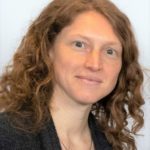Link to HAL – pasteur-04653361
Link to DOI – 10.1038/s41467-024-50427-5
Nature Communications, 2024, 15 (1), pp.6042. ⟨10.1038/s41467-024-50427-5⟩
Centrioles are the core constituent of centrosomes, microtubule-organizing centers involved in directing mitotic spindle assembly and chromosome segregation in animal cells. In sexually reproducing species, centrioles degenerate during oogenesis and female meiosis is usually acentrosomal. Centrioles are retained during male meiosis and, in most species, are reintroduced with the sperm during fertilization, restoring centriole numbers in embryos. In contrast, the presence, origin, and function of centrioles in parthenogenetic species is unknown. We found that centrioles are maternally inherited in two species of asexual parthenogenetic nematodes and identified two different strategies for maternal inheritance evolved in the two species. In Rhabditophanes diutinus , centrioles organize the poles of the meiotic spindle and are inherited by both the polar body and embryo. In Disploscapter pachys , the two pairs of centrioles remain close together and are inherited by the embryo only. Our results suggest that maternally-inherited centrioles organize the embryonic spindle poles and act as a symmetry-breaking cue to induce embryo polarization. Thus, in these parthenogenetic nematodes, centrioles are maternally-inherited and functionally replace their sperm-inherited counterparts in sexually reproducing species.

